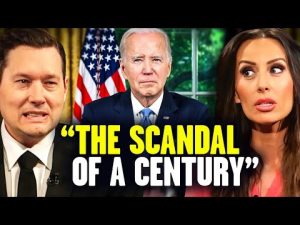In the ever-evolving landscape of modern American politics, it’s sometimes hard to keep track of where the lines are drawn. But as clear as day, there’s a glaring double standard at play in cities like Chicago. Just recently, the city’s mayor, Brandon Johnson, seemed to embrace this double standard wholeheartedly. In a rather blatant speech, he openly highlighted the number of Black individuals in his administration, drawing attention to the diversity of his hires. Now, if there’s one thing that should be crystal clear to any leader, it’s that discrimination—of any kind—is simply untenable and, frankly, against the law.
This situation in Chicago paints a troubling picture for anyone concerned about equal standards. Johnson rattled off his hires with pride, emphasizing their race as though it were the only ticket required for entry into his administration. It’s as if competence and experience have taken a backseat to the color of one’s skin. Now, imagine the furor if the tables were turned. Picture this: a white mayor standing at the pulpit and proclaiming the virtues of hiring based solely on whiteness. The media circus that would follow would be never-ending. But for Johnson, and others like him, such declarations are met with a media shrug or, worse, a round of applause.
Not only is this proclamation deeply unsettling, but it also hints at an unsustainable trajectory. A society that allows one group to openly champion their own while shunning another is bound for trouble. No stable system can endure such selective colorblindness. Sooner or later, this shaky foundation will topple. Double standards cannot stand the test of time; they’re like building a house on sand when equal application of standard is the solid rock on which fair societies are built.
Proponents of these biased policies often cry out about historical inequalities and the need for representation. But how can this be achieved fairly if the path chosen repeats the mistakes of the past under a different guise? True progress should mean striving for an inclusive society where every individual’s skills and capabilities define them, not the color of their skin. It’s naive to believe that fostering division can lead to unity. The goal should be a shared standard where merit and equality are paramount—for everyone.
The need for fair play shouldn’t be up for debate. The principles that govern our communities must apply to each member equally, not tailored and twisted for a select few. If Brandon Johnson’s sentiments are to be the new norm, he—and others who share this view—must be prepared for the inevitable backlash and upheaval. One standard for all isn’t just an ideal; it’s the only way forward. Let’s hope that Chicago, and indeed the whole nation, remembers this before more damage is done.







